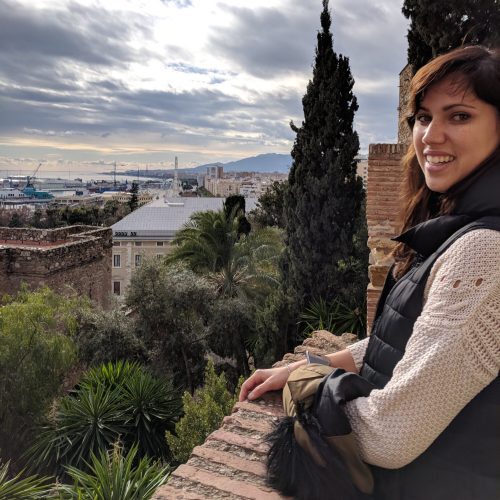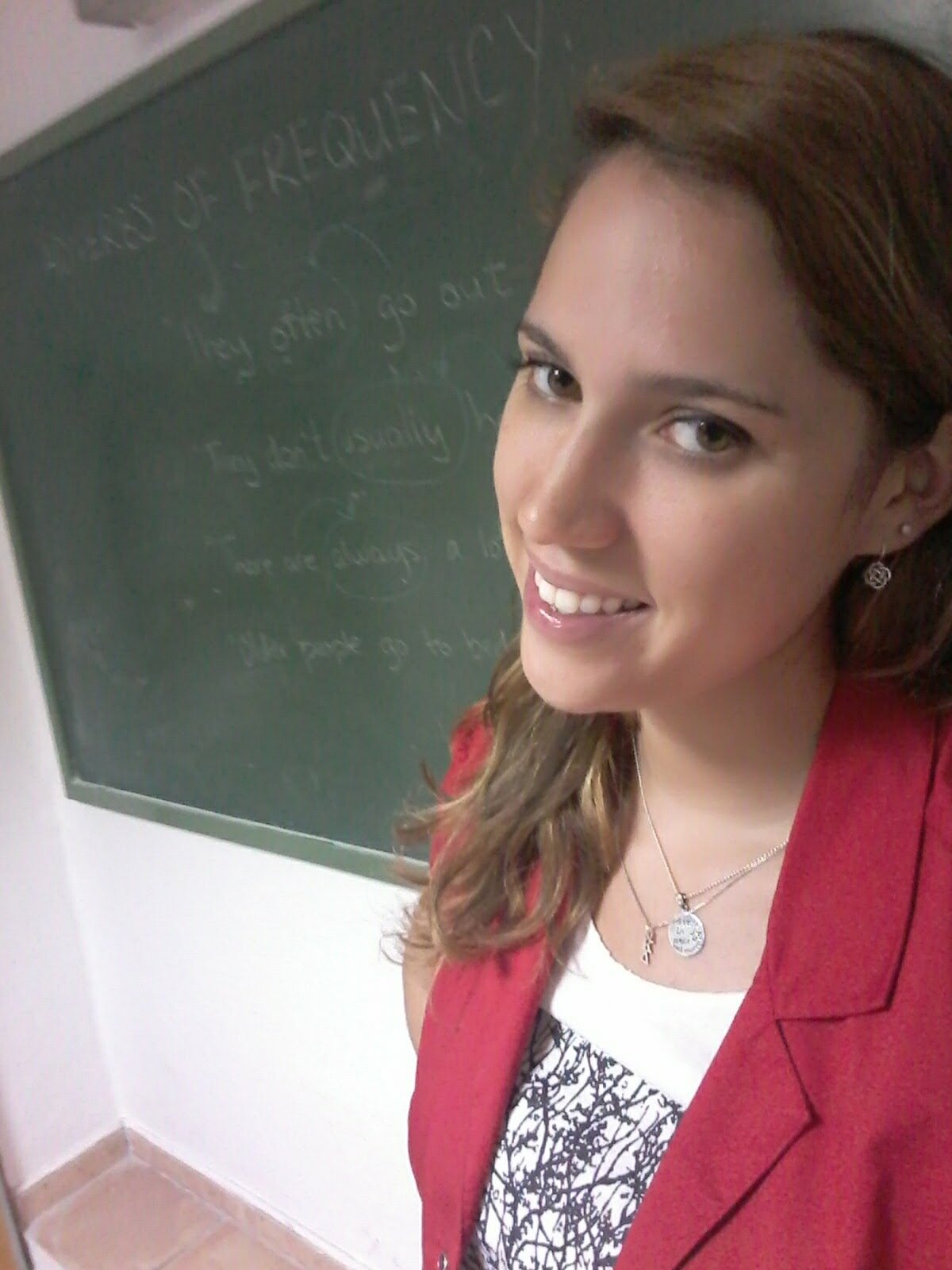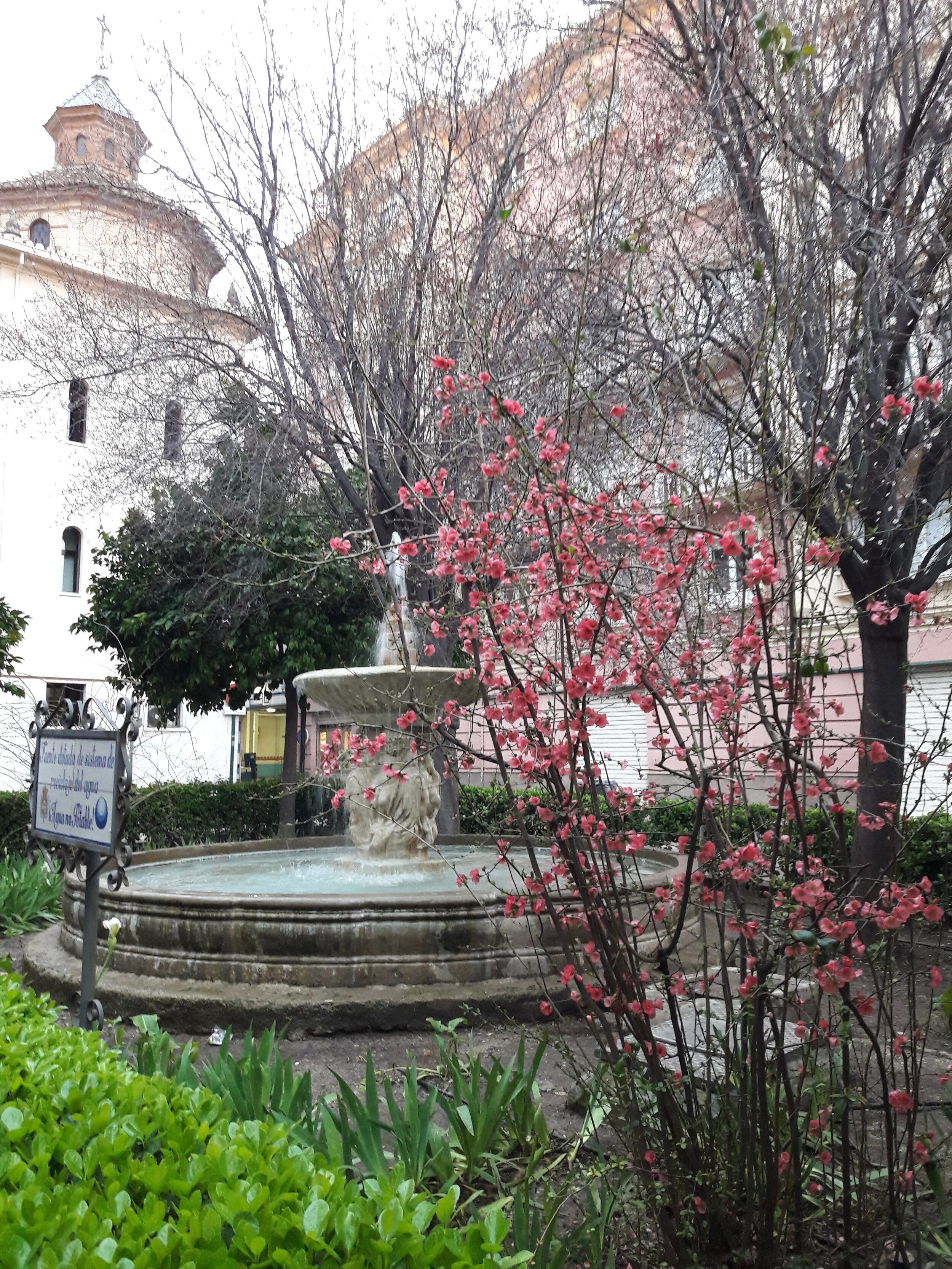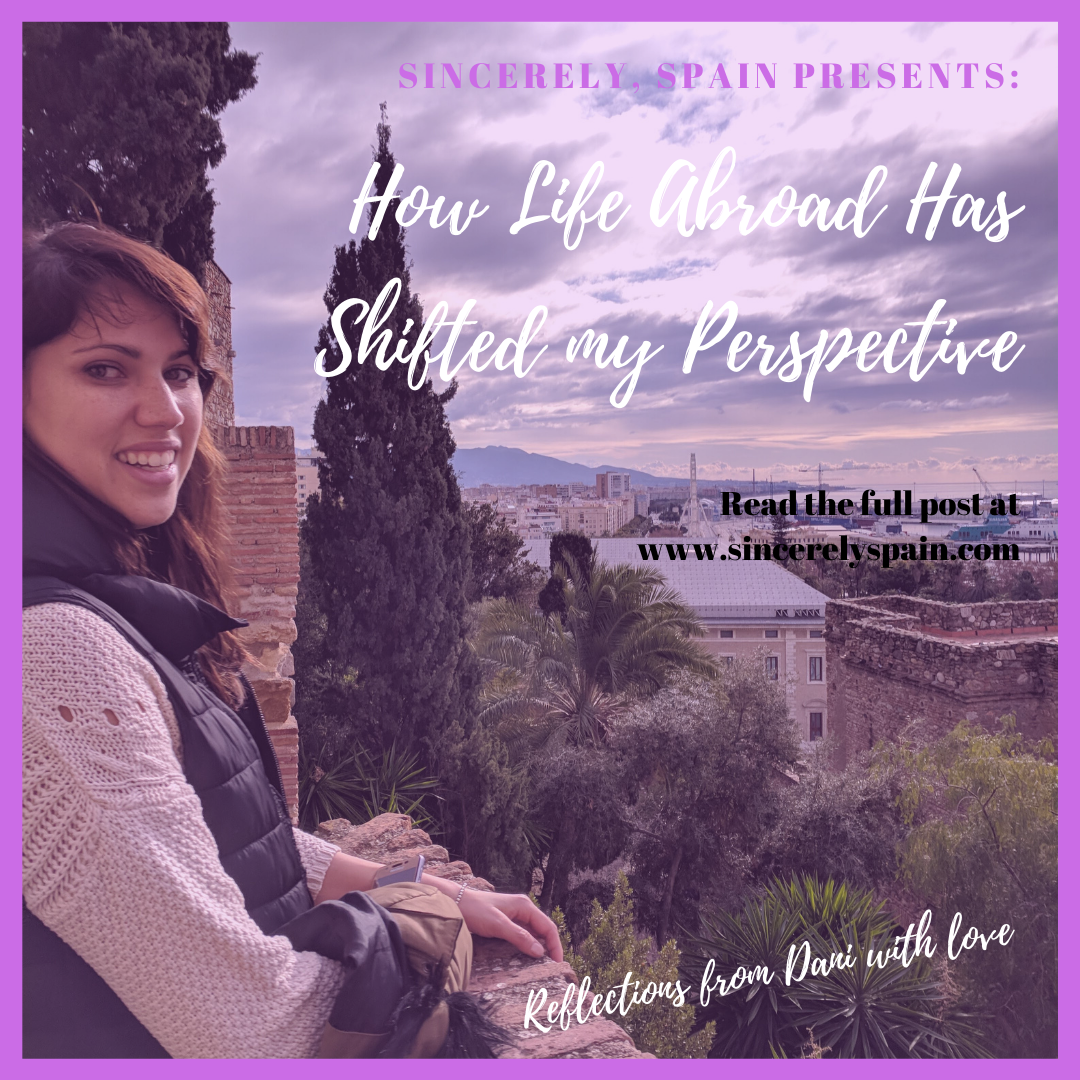
How Life Abroad Has Shifted my Perspective
Dear Evan,
Perspective is something that I must admit fascinates me. I think it’s so interesting how two (or ten or a thousand) people can experience the same event but come away with completely different interpretations and feelings about it. For one person, a particularly difficult teacher feels like a curse, for another it’s a welcome challenge. Thinking back on a specific teacher that comes to mind for me, my opinion of him and the lasting impact he’s had on my life has caused my perspective to shift. While I still wouldn’t say I liked him, I respect what he was able to do. This phenomenon of being able to change perspectives and see things in a different light has become especially apparent during my time living abroad, which has also entailed time teaching and studying languages as well.
 How Learning Spanish Has Shifted my Perspective
How Learning Spanish Has Shifted my Perspective
For many of us, we don’t really pay attention to the way in which we use words in our own language. When something is taught to you as a baby, you pick it up without questioning it and simply use ‘chose’ or “have chosen” and not ‘choosed’ when you instinctively know you should. However, if you start to learn a foreign language, you find this simplistic way of utilizing language is nearly impossible to attain!
When studying Spanish, my second language, I already had one language (English) as my base, meaning that I relied on this to understand what was going on in the new language. This was incredibly helpful for me when learning verb tenses, such as being able to equate “Yo he leído” with “I have read” and realizing that haber (in this case in the form of ‘he’) means ‘have’ just as the main verb ‘leído’ was in the participio, or past participle form. I had heard this term used previously in English, but it was never very interesting or important to me until I started learning Spanish.
 For this reason, I started to appreciate the language arts classes I had taken in school as well as all the intricacies of language that I had taken for granted in my own language. Sometimes it’s not until we look at communicating in a new language that we realize how much we should think about it. Today—many, many years after beginning my Spanish studies—I’m sometimes able to produce accurate Spanish based on a gut-feeling, but for the most part I need to go through the basics. This is a very different approach to how I had constructed language previously and it therefore allowed me to see things about English that I had not noticed before.
For this reason, I started to appreciate the language arts classes I had taken in school as well as all the intricacies of language that I had taken for granted in my own language. Sometimes it’s not until we look at communicating in a new language that we realize how much we should think about it. Today—many, many years after beginning my Spanish studies—I’m sometimes able to produce accurate Spanish based on a gut-feeling, but for the most part I need to go through the basics. This is a very different approach to how I had constructed language previously and it therefore allowed me to see things about English that I had not noticed before.
How Teaching English Has Shifted my Perspective
Teaching English has caused similar perspective shifts for me. Other than using it as a reference for studying Spanish, I had never deeply considered the complexities of my mother tongue. I knew the basics and I could instinctively tell if a sentence was grammatically correct or not, but that was where my expertise ended. When teaching children the language, this was generally good enough but as soon as I started working with teens and adults I was in for a rude awakening.
 My students always had questions I didn’t know the answers to! This was very frequent and terrifying during my first year teaching at a language academy and has since become less of a problem, although to this day I occasionally get inquiries that stump me. Each time it happens, it causes me to take a step back and examine English is a way I haven’t done before. Among the many lessons I’ve learned teaching English, this is perhaps my favorite growing pain of the job. Realizing that there are things you don’t know about something you consider yourself to be an expert of is a very humbling experience, to say the least. However, it’s eye-opening in an inspiring way, too!
My students always had questions I didn’t know the answers to! This was very frequent and terrifying during my first year teaching at a language academy and has since become less of a problem, although to this day I occasionally get inquiries that stump me. Each time it happens, it causes me to take a step back and examine English is a way I haven’t done before. Among the many lessons I’ve learned teaching English, this is perhaps my favorite growing pain of the job. Realizing that there are things you don’t know about something you consider yourself to be an expert of is a very humbling experience, to say the least. However, it’s eye-opening in an inspiring way, too!
How cool is it to realize that someone who is a learner could have a more astute eye than the teacher? That their curiosity could lead both people to deeper understanding? I used to feel horrible whenever I didn’t have the answer right away, thinking that it made me look like a bad teacher. However, with the new perspective this experience has afforded me, I now realize that it’s not as much a reflection of me but, instead, of how great a student I’m working with. It’s wonderful to see that they’ve questioned and wondered about something beyond what’s in the textbook. It’s a reminder to both of us of how much there always is to learn and I, personally, never forget the lessons I’ve learned about my own language at the prompting of a good question.
How Living Abroad Has Shifted my Perspective
Living in a different country is similar to the experience of learning a language…if it were on steroids. There’s the same confusing questions, difficult lessons, and learning curves that you experience in the classroom only it is extended to each and every aspect of your life. When you live abroad, you simply can’t escape that country’s culture. Even if you’re like me and work from home in a job that requires you to speak and write in English, you’ll hear your neighbors shouting in Spanish, have to converse with your mail carrier, or need to make a phone call from time to time. This requires continual learning and, generally, introspection.
As you adapt to the country and culture around you, you’re bound to find aspects about it that you really like or dislike in comparison to what you’re used to. Perhaps you love that meals go on for hours because time spent eating is important to your host culture or perhaps you find it frustrating that things shut down in August. Whatever you reaction is to the happenings around you, it is an indication of your own perspective and cultural norms. What you think of as ‘right’ might surprise you! However, each time you come up against a situation in which you think “this just isn’t the way things should work” it’s an excellent opportunity to examine that and get to know better the way your host culture views it, the way your home culture views it, and—most importantly—how you can make a conscious choice to view it personally.
 Living abroad has taught me so much about my own values and allows for me to constantly revisit how I feel about different things. It has been an internal battle as I try to figure out what aspects of my personality will forever separate me from being Spanish as well as what aspects I’ve changed that will now separate me from being fully American, too. In doing so, I’ve had to reach new conclusions about who I am and accept my journey in ways I hadn’t anticipated before moving abroad. Beyond the opportunity to learn Spanish and to teach English, the most important takeaway of my time abroad has been (and I believe will continue to be) this—sometimes we actually need to step away from what we know in order to get to know it better.
Living abroad has taught me so much about my own values and allows for me to constantly revisit how I feel about different things. It has been an internal battle as I try to figure out what aspects of my personality will forever separate me from being Spanish as well as what aspects I’ve changed that will now separate me from being fully American, too. In doing so, I’ve had to reach new conclusions about who I am and accept my journey in ways I hadn’t anticipated before moving abroad. Beyond the opportunity to learn Spanish and to teach English, the most important takeaway of my time abroad has been (and I believe will continue to be) this—sometimes we actually need to step away from what we know in order to get to know it better.
During my time studying abroad, teaching abroad, and just generally living abroad in Spain I have learned a lot about the Spanish language and culture. However I would argue that I’ve learned just as much about the English language, American culture, and myself. Being able to see it all from afar and through a different lens is a true gift! It has allowed me to take ownership and pride in a lot of aspects of my culture I hadn’t necessarily valued before as well as to recognize that, above and beyond being ‘American,’ ‘a teacher,’ or any other label I put on myself, I am ME. And I don’t think I would have reached the confidence and certainty with that belief I now hold if not for all the perspective-shifting mentioned above.
 Have you had a similar experience? What life events or choices have shifted your perspectives most?
Have you had a similar experience? What life events or choices have shifted your perspectives most?
Sincerely,
Dani




